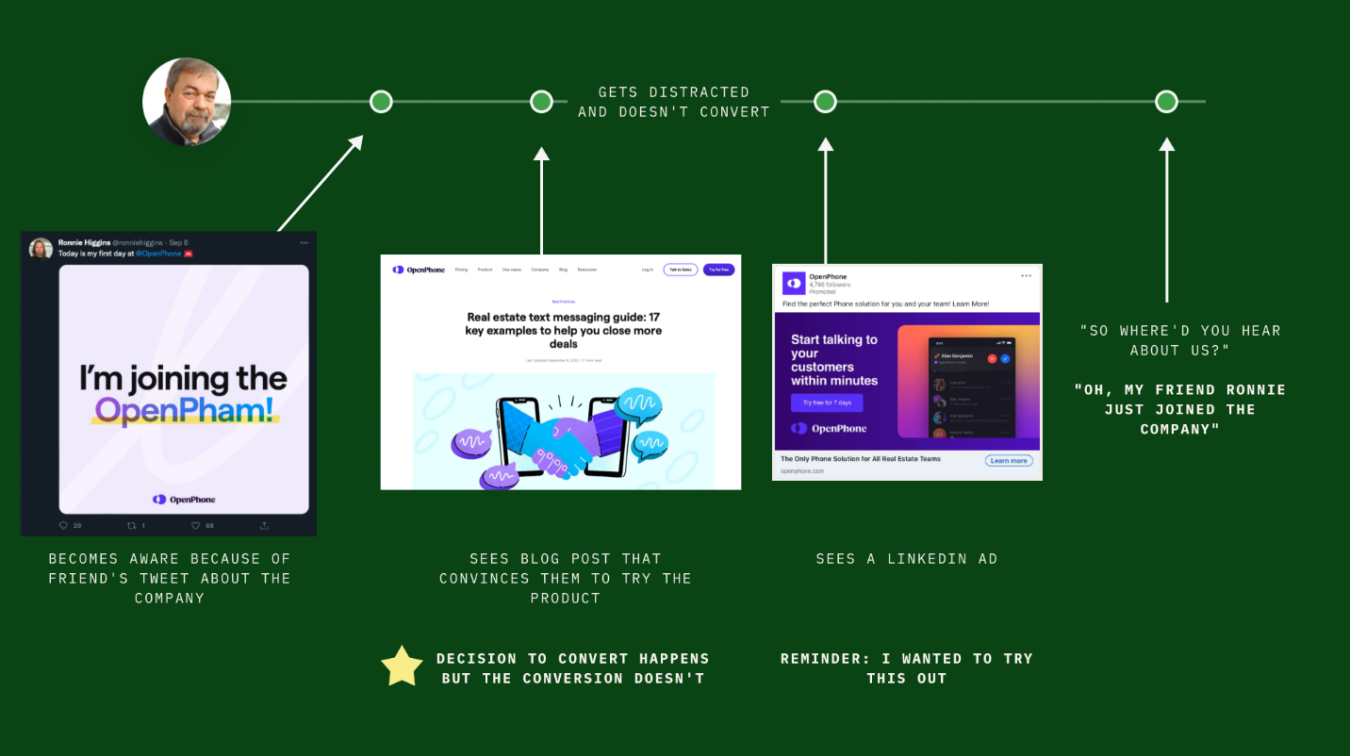Definition of self-reported attribution
Self-reported attribution is a method used by marketers to understand how consumers found out about their product or service. It involves asking customers directly how they discovered the brand. This could be through a survey, a feedback form, or even a simple question at the checkout. The aim is to identify which marketing channels are most effective in driving customer awareness and engagement.
For example, a customer might say they found out about a product through a social media ad, a friend’s recommendation, or a search engine. By collecting this data, marketers can better understand their audience’s behaviour and preferences. This information can then be used to optimise future marketing strategies, ensuring resources are focused on the most effective channels.
Table of contents
Open Table of contents
An example of self-reported attribution
Here is an example of how it works:
Growth Method, a SaaS company, launched a new email marketing campaign to promote its latest software update. After the campaign, they sent out a survey to all customers who upgraded their software. In the survey, customers were asked how they heard about the new update. 60% of respondents said they learned about the update through the email campaign. This is a self-reported attribution, as customers themselves reported the source of their information.
How does self-reported attribution work?
Self-reported attribution works by allowing consumers to directly report how they discovered a product or service, providing marketers with valuable insights into which marketing channels or strategies are most effective. This method relies on surveys, questionnaires, or feedback forms where customers can indicate the specific advertisement, referral, or platform that led them to make a purchase. Marketers can then use this data to optimize their marketing efforts, focusing on the channels that yield the highest customer conversion rates.

Expert opinions and perspectives
Here are how some of the world’s best marketing and growth professionals, and companies, think about self-reported attribution.
-
“Self-reported attribution is a useful tool for gaining insights into the customer journey, but it’s important to remember that it’s not always accurate. People may forget where they heard about your brand, or they may be influenced by other factors when they answer the question.” - Chris Walker, CEO of Refine Labs
-
“Self-reported attribution can be a powerful tool for understanding the channels and touchpoints that generate demand for your business. However, it’s important to use it in conjunction with other data sources, such as website analytics and marketing automation data, to get a more complete picture of your marketing effectiveness.” - BlendB2B
-
“Self-reported attribution can be a great way to get qualitative insights into what drives the most meaningful marketing conversions. However, it’s important to remember that it’s not a replacement for quantitative data. You should use self-reported attribution in conjunction with other data sources to get a complete picture of your marketing effectiveness.” - Gripped

Questions to ask yourself
As a modern growth marketing or agile marketing professional, ask yourself the following questions with regard to self-reported attribution:
-
Am I effectively tracking all the touchpoints in the customer journey to accurately attribute conversions?
-
Is my self-reported attribution model flexible enough to adapt to changes in marketing strategies and customer behaviour?
-
Am I using the right tools and technologies to collect, analyse, and interpret self-reported attribution data?
-
How can I improve the accuracy and reliability of self-reported attribution data to make more informed marketing decisions?
-
Am I regularly reviewing and updating my self-reported attribution model to ensure it remains relevant and effective?
Other articles you might like
Here are some related articles and further reading you may find helpful.
Additional reading
Here are some related articles and further reading around self-reported attribution that you may find helpful.
-
“The Future of Attribution Is Self-Reported” by Marketing Profs
-
“The why and how of creating a strong attribution model” by Econsultancy
About Growth Method
Growth Method is the growth platform designed for experiment-led and data-driven marketers.

Learn more at on our homepage, connect with me on LinkedIn or Twitter, or book a call here.